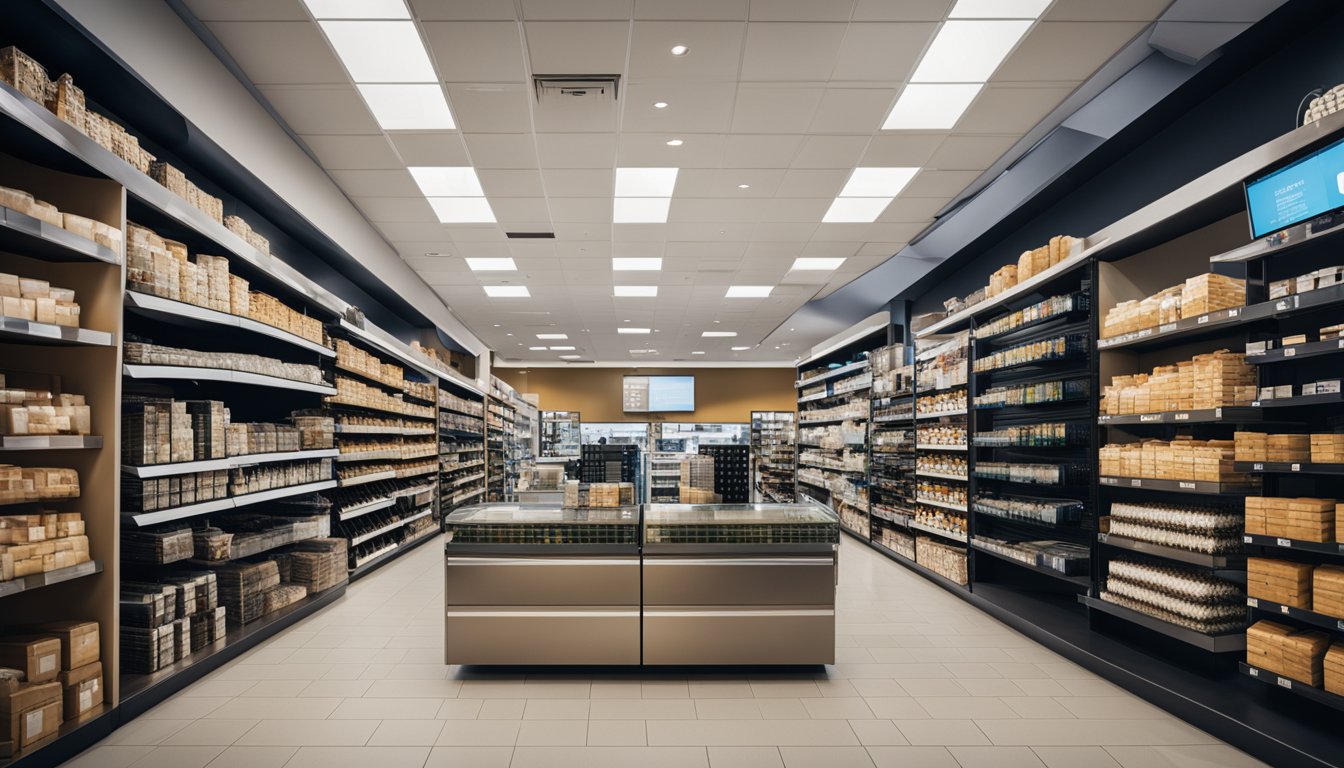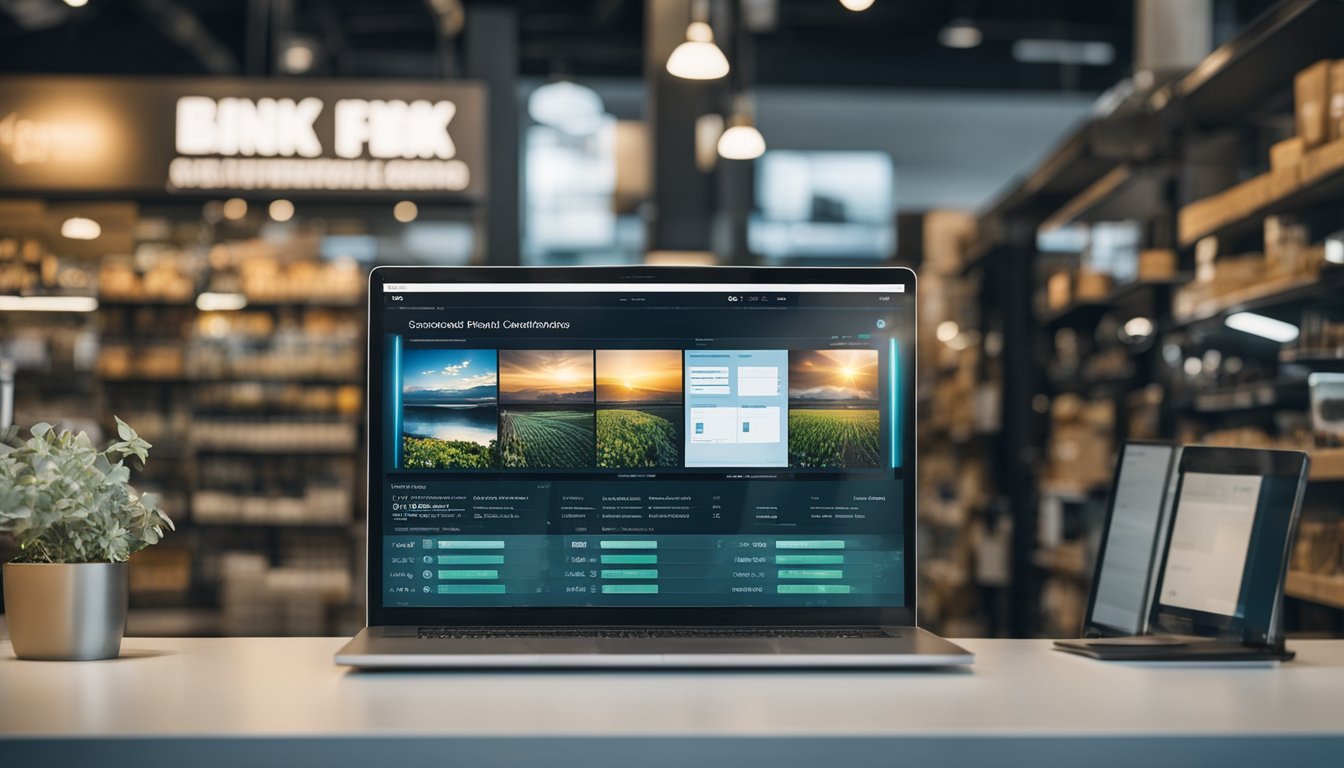
Role of Custom Software in Retail Industry
As the retail industry continues to evolve, businesses are constantly looking for ways to stay competitive and meet the ever-changing needs of consumers. One way they are doing this is by turning to custom software solutions. Custom software offers r
As the retail industry continues to evolve, businesses are constantly looking for ways to stay competitive and meet the ever-changing needs of consumers. One way they are doing this is by turning to custom software solutions. Custom software offers retailers a way to streamline operations, improve efficiency, and provide a more personalized experience for customers.

The role of custom software in the retail industry is becoming increasingly important. With the rise of e-commerce and the growing demand for seamless omnichannel experiences, retailers are turning to custom software to help them stay ahead of the curve. Custom software solutions can help retailers manage inventory, optimize supply chain management, and provide real-time analytics to help them make more informed decisions.
There are many advantages to using custom retail software. One of the biggest advantages is that it can be tailored to meet the specific needs of a business. This means that retailers can get exactly what they need, without having to pay for features or functionality that they don't need. Custom software can also help retailers save time and money by automating repetitive tasks and reducing the risk of errors. Additionally, it can help retailers provide a more personalized experience for customers, which can lead to increased loyalty and higher sales.
Key Takeaways
- Custom software can help retailers streamline operations, improve efficiency, and provide a more personalized experience for customers.
- Custom software is becoming increasingly important in the retail industry as businesses look for ways to stay competitive and meet the changing needs of consumers.
- Advantages of using custom retail software include tailored solutions, cost and time savings, and the ability to provide a more personalized experience for customers.
The Role of Custom Software in the Retail Industry

As a software developer, I have seen firsthand how the retail industry has been transformed by custom software solutions. Custom software development has emerged as a game-changer for the retail industry, offering tailored solutions that align with the unique needs of businesses. From enhancing efficiency and providing personalized customer experiences to optimizing inventory management and offering real-time analytics, the benefits of custom software are undeniable.
One of the key benefits of custom software in the retail industry is the ability to automate routine tasks. Retail software solutions enable retailers to automate their daily workflows, expand their reach, and offer a touchless shopping experience. These solutions can range from off-the-shelf POS systems with basic features to custom retail software with industry-specific functionalities for apparel stores, supermarkets, etc.
Custom software can also help retailers to better manage their inventory. Inventory management is critical for retailers, as it directly impacts their bottom line. With custom software, retailers can track inventory levels in real-time, identify trends, and optimize their supply chain. This helps retailers to reduce costs, minimize waste, and improve customer satisfaction.
Another area where custom software can make a significant impact is in customer experience. With custom software, retailers can personalize the shopping experience for their customers. This can include targeted marketing campaigns, personalized recommendations, and customized promotions. By providing a personalized experience, retailers can increase customer loyalty and drive sales.
Finally, custom software can help retailers to stay ahead of the competition. The retail industry is highly competitive, and retailers need to be able to adapt quickly to changing market conditions. With custom software, retailers can gain a competitive edge by leveraging the latest technology to improve their operations and customer experience.
In conclusion, custom software has become an essential tool for retailers in today's fast-paced, technology-driven world. By leveraging custom software solutions, retailers can automate routine tasks, optimize inventory management, improve customer experience, and stay ahead of the competition.
Advantages of Custom Retail Software

As a retail business owner, I know that having the right tools and technology is crucial for success. One of the most important tools in today's retail industry is custom retail software. Custom software solutions can provide a competitive advantage, business intelligence, scalability, flexibility, efficiency, and productivity. In this section, I will discuss the advantages of custom retail software in detail.
Competitive Advantage and Business Intelligence
Custom retail software can provide a significant competitive advantage by offering unique features and capabilities that are tailored to the specific needs of a business. These features can include demand forecasting, predictive analytics, and real-time analytics. By leveraging these capabilities, businesses can make data-driven decisions and stay ahead of the competition.
Scalability and Flexibility
Another advantage of custom retail software is its scalability and flexibility. Custom software solutions can be designed to grow and adapt with a business, allowing it to keep up with changing demands and market conditions. Additionally, custom retail software can be integrated with existing systems and applications, providing a seamless experience for users.
Efficiency and Productivity
Custom retail software can also improve efficiency and productivity by automating repetitive tasks and streamlining workflows. This can free up time for employees to focus on more strategic tasks and improve overall productivity. Additionally, custom software solutions can be designed to provide a unified view of data and processes, reducing the need for manual data entry and improving accuracy.
In summary, custom retail software can provide a significant competitive advantage, business intelligence, scalability, flexibility, efficiency, and productivity. By leveraging these advantages, businesses can stay ahead of the competition, make data-driven decisions, and improve overall performance.
Key Features of Custom Retail Software

As the retail industry continues to evolve, businesses must find ways to stay competitive and meet the changing needs of their customers. Custom retail software development has emerged as a game-changer for the retail industry, offering tailored solutions that align with the unique needs of businesses. Here are some of the key features of custom retail software:
Inventory and Supply Chain Management
Managing inventory is crucial for any retail business. Custom retail software solutions can help automate reordering, control inventory, and manage stock levels. With real-time inventory tracking, businesses can optimize their supply chain and improve their bottom line. Additionally, custom software solutions can help manage the entire supply chain, from the manufacturer to the customer, ensuring that the right products are in stock at the right time.
Customer and Employee Management
Custom retail software solutions can help businesses manage their customer and employee data more effectively. Customer relationship management (CRM) systems can help businesses track customer interactions, manage customer data, and improve customer service. Employee management software can help businesses track employee hours, manage schedules, and streamline payroll processing.
E-commerce and Mobile Capabilities
With the rise of e-commerce, businesses must have an online presence to remain competitive. Custom retail software solutions can help businesses create an online store, manage their shopping cart, and process online payments. Additionally, custom software solutions can help businesses create mobile apps that allow customers to shop on the go.
In conclusion, custom retail software solutions offer a range of benefits to businesses in the retail industry. From inventory and supply chain management to customer and employee management, custom software solutions can help businesses stay competitive and meet the changing needs of their customers.
The Future of Custom Software in Retail

As a software consultant, I believe that custom software will play a significant role in the future of the retail industry. With the rapid advancement of technology, retailers must adapt and innovate to stay ahead of the competition. Custom software provides a tailored solution to meet the unique needs of each retailer.
One of the most exciting technologies that custom software can incorporate is artificial intelligence (AI). AI can be used to analyze customer data and provide personalized shopping experiences. For example, AI-powered chatbots can assist customers with their purchases and answer their questions. Virtual reality (VR) is another technology that can enhance the shopping experience. Retailers can use VR to create virtual showrooms and allow customers to try on clothes or test out products before making a purchase.
Multi-currency support is another feature that custom software can provide to retailers. With the rise of international e-commerce, retailers must be able to accept payments in different currencies. Custom software can handle multi-currency transactions and provide real-time currency conversion rates.
A custom solution also allows retailers to manage their content more efficiently. A content management system (CMS) can be tailored to the retailer's specific needs and provide a user-friendly interface for managing products, promotions, and other content. This can save time and reduce errors compared to manual content management.
In conclusion, custom software development is transforming the retail industry, and it will continue to do so in the future. With the integration of AI, VR, multi-currency support, and CMS, retailers can provide a personalized and streamlined shopping experience for their customers.
Frequently Asked Questions

What are the benefits of using custom software in the retail industry?
Custom software can provide many benefits to retailers, including increased efficiency, improved customer experience, and better data management. By tailoring software to the specific needs of a business, retailers can streamline operations and reduce costs while improving accuracy and speed.
How can custom software improve efficiency in retail businesses?
Custom software can help retailers automate many routine processes, such as inventory management, order processing, and customer service. This can save time and reduce errors, allowing staff to focus on more important tasks. Custom software can also provide real-time data and analytics, allowing retailers to make informed decisions quickly.
What are the key considerations when developing custom software for the retail industry?
When developing custom software for the retail industry, it is important to consider factors such as scalability, security, and ease of use. The software should be designed to grow with the business and be able to handle increasing amounts of data and traffic. Security is also a critical consideration, as retailers must protect sensitive customer data. Finally, the software should be intuitive and easy to use, to ensure that staff can quickly learn and use it effectively.
What are the most common challenges faced when implementing custom software in the retail industry?
One of the most common challenges faced when implementing custom software in the retail industry is resistance to change from staff. Retailers must ensure that staff are properly trained and comfortable using the new software. Another challenge is ensuring that the software integrates smoothly with existing systems and processes. Finally, retailers must ensure that the software is scalable and can handle growing amounts of data and traffic.
How can custom software help retailers better understand their customers?
Custom software can provide retailers with valuable data and analytics about their customers, including demographics, buying habits, and preferences. This information can help retailers tailor their products and services to meet the specific needs of their customers, improving customer satisfaction and loyalty.
What are the latest trends in custom software for the retail industry?
Some of the latest trends in custom software for the retail industry include the use of artificial intelligence and machine learning to provide personalized recommendations and improve customer service. Another trend is the use of mobile apps and other digital platforms to provide customers with a seamless shopping experience across multiple channels. Finally, retailers are increasingly using data analytics and predictive modeling to forecast demand and optimize inventory management.




